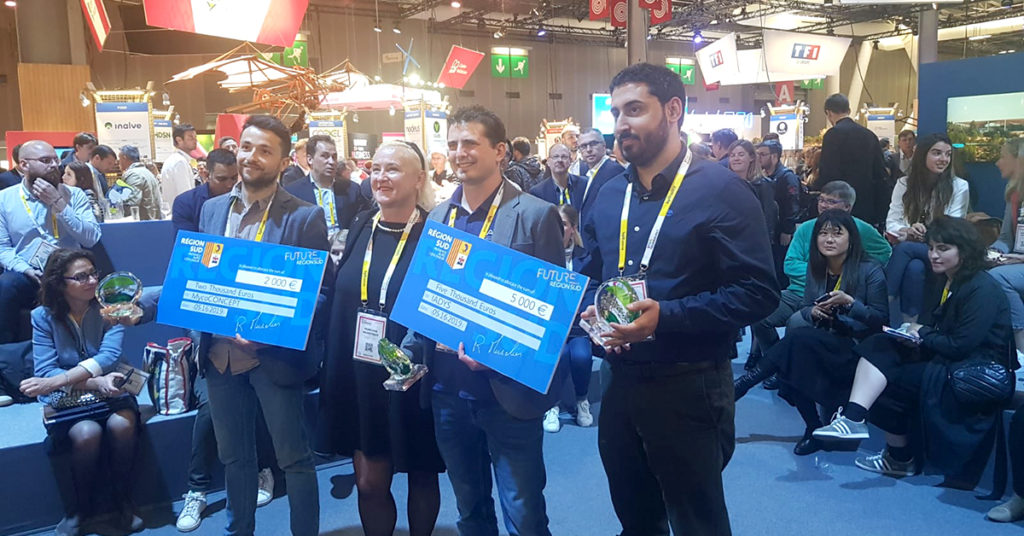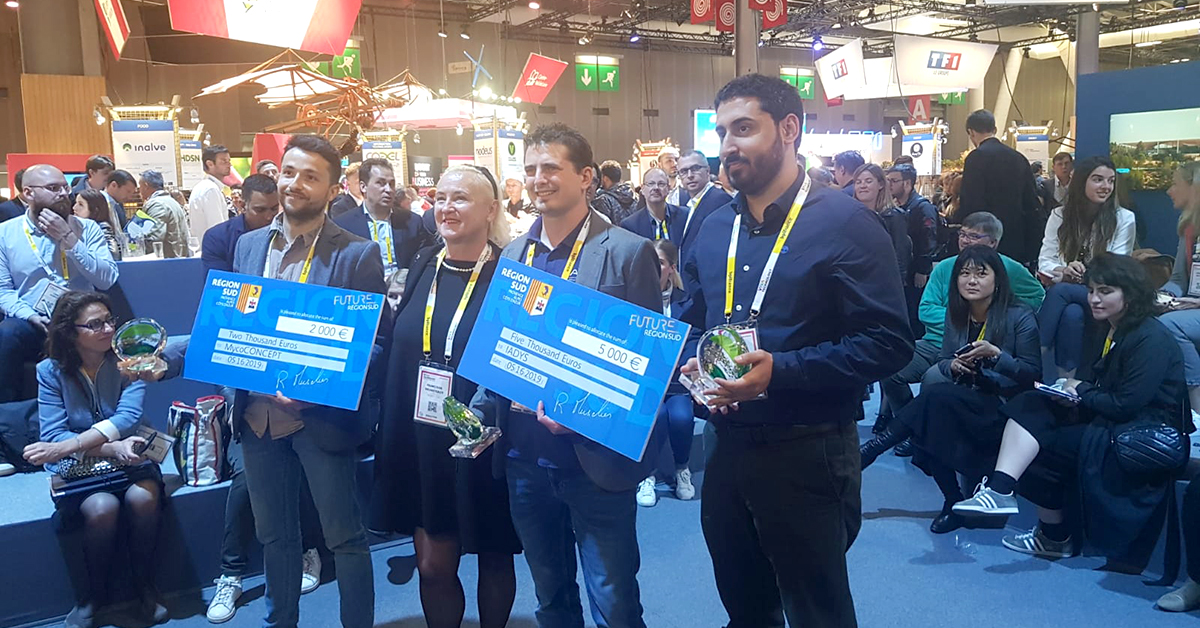
An App to boost recycling while creating jobs for vulnerable populations in Mediterranean cities? A cleaning robot for floating waste and oil slicks? Mycelium as an alternative to polystyrene to stop the invasion of plastic microbeads on our beaches ? These three solutions were awarded by the jury of the “Zero plastic waste in the Mediterranean in 2030” challenge and honored by the South Region – Provence-Alpes-Côte d’Azur and ANIMA Investment Network during the VivaTechnology2019 exhibition in Paris.
Lebanese Startups shortlisted for the bootcamp
Following an international call for applications for the Zero Plastic Waste in the Mediterranean in 2030 challenge, more than 60 proposals from 11 countries were received and 15 projects successfully passed the first selection stage and in a bootcamp held on 23 and 24 April 2019 in Marseille and at thecamp.
Team members from Live Love Recycle and Mushtic were among the 15 projects selected for the bootcamp.
LiveLoveRecycleis a free service based on a mobile application where residents in Beirut are able to order up to two requests per month for their recyclables at no cost. A driver on an e-bike will be at the designated location in less than 30 minutes after the request is made to collect the bags and drop them back to the warehouse. Not only did they reduce the waste and have enabled more people in Beirut to recycle for free, but this program has created more than 430 jobs for people from vulnerable communities reducing Lebanon’s refugee crisis and joblessness.
Mushtic are working on a bio-based material made from agricultural waste and mushroom root, which will replace the current needed properties or uses of Styrofoam. It is also customizable into any shape or dimension, and is home compostable after its use, improving soil quality. The production process of this material consumes less energy of production comparing to Styrofoam production, where even the raw materials are cheaper than PS’s raw material; Mushtic’s raw materials are sourced from local farmers, mills or municipalities, alleviating those entities’ pain concerning waste management. Regarding the second raw material, the mushroom strain, it will be constantly reproduced in house, in their facility laboratory. Mushtic is currently enrolled in Berytech’s Agrytech Program.
LiveLoveRecycle wins Special Jury Prize
After a lively debate, the 10 members of the jury chose to award Iadys and its surface marine robot made in the South Region, MycoConcept, who refines its biomaterial project by focusing with a 100% local supply, as well as Live Love Recycle, which helped collect 30 tons of waste in less than 9 months in Beirut, and relies on the support of the Region and its ecosystem to establish itself in France by adapting its App and operating model to local institutional, economic and social conditions.
“For this first challenge launched with THE NEXT SOCIETY network thanks to the initiative of the South Region, Mediterranean entrepreneurs proved their solutions could easily compete with those of their European counterparts: we were often impressed by their maturity and thoughtful market strategies,” comments Emmanuel Noutary – General Delegate, ANIMA Investment Network and initiator of THE NEXT SOCIETY.
Live Love Recycle from Lebanon received the Special Jury Prize. The startup combines digital technology with social and environmental impact. “This project is particularly illustrative of this new generation of Mediterranean and African entrepreneurs who bring innovative and complementary responses to the efforts of public authorities to address contemporary major issues of sustainable development,” adds Noutary.
CEO of Nielsen Recycling and one of the judges of this challenge Mokhtar Zannad welcomed the initiative of the South Region, which brings together actors from the North and South of the Mediterranean. “Let’s not forget that this is a virtually closed sea and that a bottle thrown in Beirut can end up in Marseilles in a few weeks. This cradle of many of our civilizations is in danger today. It is time to act before there is more plastic than fish. This kind of challenge and the new projects carried out by young startups contribute perfectly to it.”
Discover the 15 selected projects and the experts associated with this 1st challenge
Zero plastic waste in the Mediterranean by 2030
Launched in 2017, the Mediterranean of the Future initiative aims to mobilize the actors and more broadly the civil societies of the Mediterranean regions to think and act collectively in order to offer a sustainable future to the Mediterranean and its riparian countries.
The Mediterranean Sea today suffers from too much pollution, especially created by plastic waste. To face this major climate challenge, the Region and its partners launched a «Zero plastic waste in the Mediterranean by 2030» challenge to support innovations that meet the challenge.








